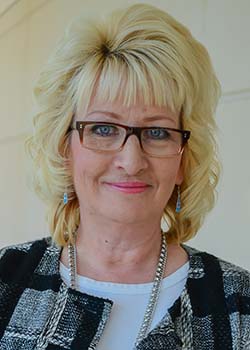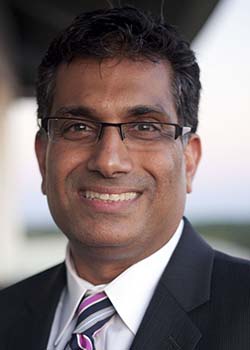 |  |
Sharon Medcalf, Ph.D. | Ali S. Khan, M.D., M.P.H. |
Ali S. Khan, M.D., M.P.H., dean of the UNMC College of Public Health, and Sharon Medcalf, Ph.D., assistant professor and director of the Center for Biosecurity, Biopreparedness and Emerging Infectious Diseases (CBBEID) at UNMC, were invited to attend the workshop. The CBBEID houses the Center for Preparedness Education, a state and regional training center for emergency preparedness and response.
The pair worked with representatives from the Centers for Disease Control and Prevention (CDC) and 18 international health organizations to develop a coordinated program to prepare highly-trained rapid responders for their next deployments. GOARN partners provide a cadre of expertise and gold-standard practices for rapid responders and multidisciplinary international GOARN response teams to enhance international response to outbreaks.
In 2015, Dr. Khan twice deployed with GOARN to provide epidemiologic assistance in Sierra Leone during the Ebola outbreak.
“We were humbled to be invited by WHO with other participants across the globe to apply to be among the first universities to franchise WHO training for a global response corp,” he said.
Dr. Medcalf’s research interests are in hospital preparedness, community medical surgery, and smallpox vaccination of laboratory workers. She also is UNMC’s program director for the master of science program in emergency preparedness, the first graduate program in the region with a focus on public health and medical response to a disaster.
“It was an honor to gather with academic and training partners from around the world and contribute to a collaborative training agenda for responders to tomorrow’s infectious disease outbreak . . . wherever that may occur,” she said.
GOARN is at the center of WHO’s response and resilience strategy. With an international network of more than 200 technical institutions and specialist networks, GOARN assists with the prevention and control of public health emergencies. Since its inception in 2000, it has responded to 120 field missions in 80 countries, deploying more than 2,700 persons to the field from more than 100 institutions around the world. GOARN is now providing assistance to Haiti in response to the cholera outbreak.
